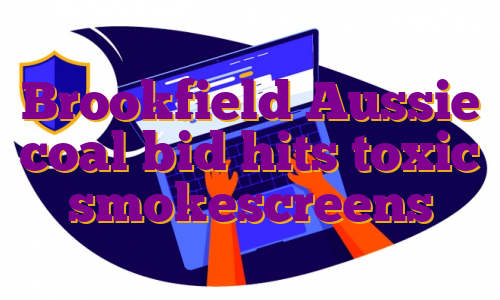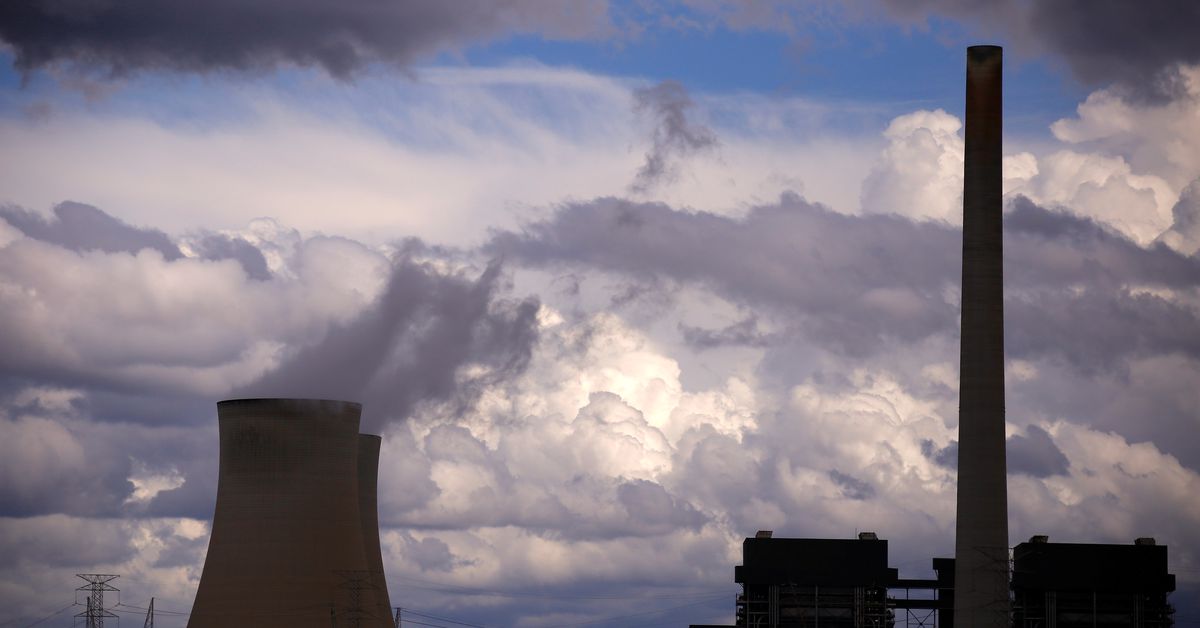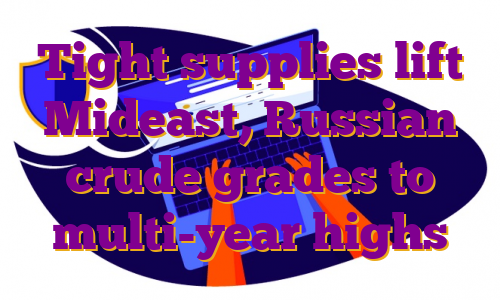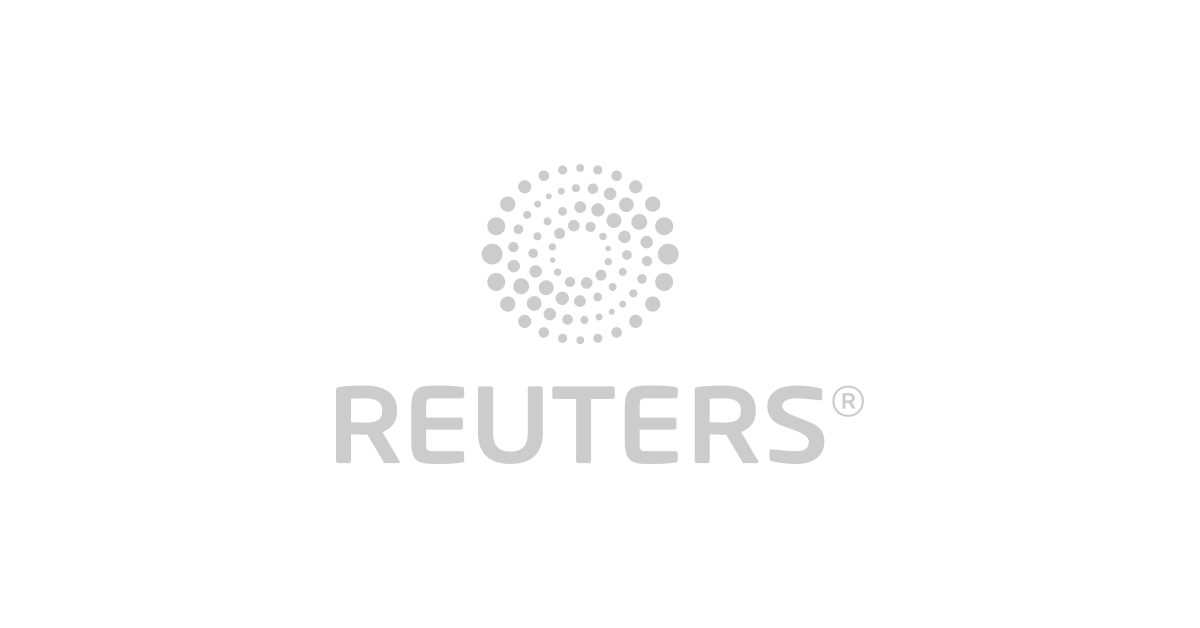Storm clouds can be seen behind chimneys at the Bayswater coal-powered thermal power station located near the central New South Wales town of Muswellbrook, Australia, March 14, 2017. Picture taken Mach 14, 2017. REUTERS/David Gray Register now for FREE unlimited access to Reuters.comRegisterMELBOURNE, Feb 23 (Reuters Breakingviews) – Brookfield Asset Management (BAMa.TO) and Grok Ventures’ A$5 billion ($3.6 billion) offer for AGL Energy read more has reignited Australia’s dirty climate wars. The asset manager and the investment fund of Atlassian (TEAM.O) co-founder Mike Cannon-Brookes want to plough up to A$20 billion into the coal-heavy power company to speed its shift to solar and wind. That ought to be a welcome development for a struggling target read more and for a federal government finally paying lip service read more to net-zero greenhouse-gas emissions. Instead, they’re returning to tired old anti-renewables tropes.The bidders face some deserved hurdles as it is. Success would mean Brookfield part-owning not just Australia’s largest power producer and retailer, but also, thanks to a recent A$10 billion club deal for AusNet, significant parts of the country’s transmission grid. That raises potential but probably not insurmountable competition concerns.To seal a deal, wannabe buyers also need to up their 4.8% premium. Some shareholders may agree that AGL’s plan to demerge its two divisions will destroy value, but Brookfield and Grok have to work off where the shares trade, not where they think they should. AGL Chief Executive Graeme Hunt is overplaying his hand implying he needs at least a 30% premium to start talks. But there’s probably some middle ground.Register now for FREE unlimited access to Reuters.comRegisterTrouble is, Hunt is raising the more serious spectre of Brookfield-Grok disrupting the energy market. That seems disingenuous while pitching for a higher offer, but he’s following the government’s lead: On the back of the bid, Prime Minister Scott Morrison warned early coal plant closures mean “electricity prices go up”. Treasurer Josh Frydenberg asserted it was an “indisputable fact” proved by the 2017 closure of Hazelwood power station.That specific comparison is wielded out of context: French owner Engie only gave six months’ notice before switching Hazelwood off, with no plans to replace production. And rising gas prices and big coal suppliers gaming the system also played a big role in price hikes, according to Australia’s own competition commission and researchers at the University of Melbourne.Brookfield and Grok are giving at least eight years’ notice and will only mothball coal once enough renewables are up and running. Of course, a parliamentary election due by May is fuelling tried and tested populist politics. The buyers could do without the toxic smokescreen.Follow @AntonyMCurrie on TwitterCONTEXT NEWS- AGL Energy Chief Executive Graeme Hunt on Feb. 22 said the A$5 billion ($3.6 billion) offer from Brookfield Asset Management and Grok Ventures offered very poor value for shareholders. He told The Australian newspaper that investors “typically, for a change of control…are looking for premium 30-40 plus per cent over whatever the appropriate share trading range is for the company”.- Hunt also called into question the consortium’s ability to replace AGL’s coal-fired power stations with adequate renewable energy sources by 2030. On the same day federal Treasurer Josh Frydenberg said it was an “indisputable fact” that energy prices will go up if coal-fired power stations close early, referring to the shutdown of the Hazelwood plant in Victoria in 2017.- Any takeover offer which leaves a foreign company owning 10% or more in an Australian company deemed part of critical infrastructure like energy, financial services, food and grocery, and water and sewage is subject to approval by the Foreign Investment Review Board, which submits its recommendations to the country’s Treasurer.- AGL’s bid represents a 4.8% premium to the stock’s closing price on Feb. 18. The prospective buyers made their approach on Feb. 19. The company’s board said on Feb. 21 that it had rejected the offer.Register now for FREE unlimited access to Reuters.comRegisterEditing by Jeffrey Goldfarb and Katrina HamlinOur Standards: The Thomson Reuters Trust Principles. .
Tight supplies lift Mideast, Russian crude grades to multi-year highs
- Cash Dubai’s premium breaches $4/bbl for first time – Platts
- ESPO premiums jump to $7/bbl, highest since Dec 2019
- Sokol premiums rise to highest since Dec 2019
SINGAPORE, Feb 16 (Reuters) – Middle East benchmark Dubai crude soared to a record this week while spot premiums for April-loading Russian oil jumped to their highest in more than two years in Asia, trade sources said on Wednesday as prices returned to pre-pandemic levels.The global supply-demand balance has tightened as the Organization of the Petroleum Exporting Countries and its allies are lagging behind commitments to increase output by 400,000 barrels per day each month. read more Demand, meantime, is robust as refiners globally are cranking up operations to reap higher margins on gasoline and diesel.Register now for FREE unlimited access to Reuters.comRegisterThe Russia-Ukraine crisis has also boosted Brent prices, pushing the benchmark’s premium to Dubai to its highest since 2013 this week.There was no immediate sign of the price spread weakening after Russia pulled back some of its forces from the border on Tuesday.The wide spread between the benchmarks is boosting Asia’s demand for Middle East and Russian grades priced off Dubai, leading spot premiums to hit multi-year highs this month.Cash Dubai hit a record high at Tuesday’s market close, breaching $4 a barrel premium over futures for the first time, oil pricing agency S&P Global Platts reported.The April cash Dubai versus same-month Dubai futures was assessed at a premium of $4.08 a barrel, Platts data showed.For Russian grades, spot premiums for ESPO Blend crude exported from the Far East port of Kozmino soared to their highest in more than two years after producer Surgutneftegaz sold three cargoes via a tender, trade sources said.The cargoes for late March to early April loading were sold at premiums of $7-$7.10 a barrel above Dubai quotes, they said, about $2 higher than last month.ESPO crude premiums were last seen at these levels in December 2019, Refinitiv data showed.Trading houses Mitsui and Petraco bought the cargoes, the sources said.Similarly, spot premiums for Russian Sokol crude loading in April jumped to their highest since January 2020 after India’s ONGC Videsh sold a cargo via a tender, they added.The cargo for April 19-25 loading was sold to Glencore at a premium of $7.80-$7.90 a barrel to Dubai quotes, the sources said.Register now for FREE unlimited access to Reuters.comRegisterReporting by Florence Tan in Singapore and Olga Yagova in Moscow; Editing by Tom Hogue, Shailesh Kuber & Simon Cameron-MooreOur Standards: The Thomson Reuters Trust Principles. .




